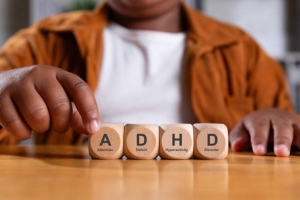New research has revealed a sharp rise in the number of prescriptions for ADHD medication in England, with figures showing an average annual increase of 18% since the onset of the Covid-19 pandemic. Published in BMJ Mental Health, the study highlights significant growth in the use of all five UK-licensed ADHD treatments, particularly amid limited access to non-medical therapies.
The most prescribed drug remained methylphenidate, but lisdexamfetamine saw the largest surge - jumping by 55% from 2019 to 2024. Researchers examined data from the English Prescribing Dataset, comparing national, regional, and Integrated Care Board (ICB) levels, and found that prescriptions had risen in every region, although with notable variation.
London experienced the highest annual increase at 28%, while the Northeast and Yorkshire saw the lowest at 13%. Birmingham and Solihull ICB reported a nearly 51.5% rise, in contrast to Norfolk and Waveney ICB, where the increase was just over 4.5%. These trends also correlated with factors such as deprivation, ethnicity, and age.
Experts suggest the pandemic’s disruption to daily life and mental wellbeing likely contributed to the spike in prescriptions. The study’s authors call for urgent action to address inequalities in ADHD diagnosis and treatment, urging tailored regional support and greater access to alternative care options.
A dedicated mental health helpline supporting those in the farming and rural community has marked its first year in operation, with reports of a significant positive impact. The service, run by the charity YANA – short for You Are Not Alone – offers crucial emotional support to individuals across East Anglia working in agriculture and related rural industries.
Launched as a full-time service a year ago, the helpline operates Monday to Friday and provides a confidential space for callers to talk openly about their mental health. Helpline manager Claire Atherton explained that the charity focuses on being a listening ear for people who often feel isolated in their work.
The roots of YANA go back 16 years, when conversations around mental health began to emerge among volunteers in the agricultural sector. It officially became an independent charity in 2020, evolving from a voicemail system into a fully staffed helpline.
Ms Atherton highlighted the unique challenges of rural life, where individuals often work alone and have few opportunities to talk about how they feel. "Having someone to listen can make all the difference," she said. "And now, more people are hearing about the service through word of mouth."
The increasing number of autism diagnoses has drawn widespread attention, with some questioning the rapid rise. While concerns have been raised about the growing prevalence, experts at Northeastern University suggest that heightened awareness and earlier diagnoses are key factors behind the trend. Autism, only officially recognised as a disability in 1990, remains an evolving field of study. Improved understanding and changes in diagnostic criteria, including the recognition of autism as a spectrum disorder, have contributed to the increase in cases.
Greater public awareness and more sophisticated screening methods have led to earlier and more accurate identification of autism in children. Historically, research was largely centred on middle-class white populations, but growing recognition that autism affects individuals from all ethnic and cultural backgrounds has broadened diagnostic scope. Additionally, clinicians now acknowledge that conditions such as Down syndrome and ADHD can co-exist with autism, further increasing reported cases. While boys remain more frequently diagnosed, awareness has improved for girls, who often present different symptoms.
Alongside better identification, various genetic and environmental factors also play a role. Researchers highlight inherited genetic mutations, increasing parental age, and improved survival rates for premature babies as possible contributors. However, autism lacks a single biological marker, relying instead on clinical assessments and behavioural observations. This makes standardised screening tools essential in ensuring early intervention, which can significantly improve long-term outcomes.
Since 2007, the American Academy of Paediatrics has recommended universal autism screening at 18 and 24 months to facilitate early support. Research indicates that states with more consistent screening approaches identify more cases, while others may overlook children needing support.
New research by Ambitious about Autism has revealed that parents of autistic children are being driven into financial hardship and forced to leave their jobs due to inadequate educational support. The study, which surveyed over 1,300 autistic individuals and parents, examined the impact of missed education - whether through exclusion, suspension, or reduced timetables. It found that one in ten parents had lost their jobs as a result, while more than half had to take extended time off work to care for their children.
The findings highlight the widespread disruption caused by lost learning, with 90% of parents reporting a negative effect on their personal and professional lives. Additionally, nearly half said that the challenges extended beyond their autistic child, also impacting siblings. Among autistic young people, 71% had experienced disruptions in their education, with 60% stating it had harmed both their academic progress and mental health. The vast majority of respondents believed that better autism training for teachers would significantly improve support in schools.
Jolanta Lasota, Chief Executive of Ambitious about Autism, warned that parents are facing severe financial and emotional distress, with some relying on foodbanks or struggling to pay their bills. Many have had to cut their working hours or give up their careers entirely. She described the issue of lost learning among autistic children in mainstream education as a “hidden crisis” and called for urgent improvements to ensure autistic pupils receive meaningful support.
Lasota stressed the need for systemic change, urging schools to be better equipped to support autistic students beyond simply including them in the classroom. She emphasised that with the right training and understanding, schools could make a real difference in the lives of autistic pupils, ensuring they are actively engaged in education and able to succeed.
The U.S. Centres for Disease Control and Prevention (CDC) is launching a large-scale study into potential links between vaccines and autism, despite extensive research dismissing any connection. This follows a major measles outbreak in Texas and New Mexico, with over 200 cases and two deaths, largely due to falling vaccination rates fuelled by misinformation.
U.S. Health Secretary Robert F. Kennedy Jr., a long-time sceptic of the MMR vaccine, has been at the centre of the debate. While he recently emphasised vaccination's importance in a Fox News piece, he maintained that parents should decide for themselves. The CDC and Health and Human Services (HHS) defended the study by citing rising autism diagnoses, but experts warn it may reinforce vaccine fears.
Dr. Wilbur Chen, a former CDC adviser, cautioned that launching such research could fuel public doubt. Many scientists attribute rising autism rates to broader screening and expanded diagnostic criteria. The debunked vaccine-autism link stems from Andrew Wakefield’s 1990s study. Research suggests autism is more likely tied to genetics, prenatal development, and birth complications rather than vaccines.
The issue has become increasingly political, with President Donald Trump referencing rising autism rates in a recent address to Congress. He expressed confidence in Kennedy and his team to investigate the matter. However, Kennedy’s position has raised concerns among some Republican lawmakers. Senator Bill Cassidy, a physician, urged Kennedy to disavow any vaccine-autism connection during his confirmation hearing, but Kennedy declined to do so. The debate has also extended to Trump’s nominee for the National Institutes of Health, Dr. Jay Bhattacharya, who faced questioning on his views regarding vaccine safety research.
New analysis from the King’s Fund has highlighted how rising staff costs in social care are forcing local authorities to cut back on support, leaving more people without the help they need. The report, Social Care 360, warns of a vicious cycle where increasing wages, rising fees, and budget pressures are reducing the number of people receiving care, despite growing demand.
The introduction of the National Living Wage in 2016 has driven up the cost of providing care, leading local councils to pay significantly higher fees. Further financial strain has come from increased National Insurance contributions, and while a proposed ‘fair pay agreement’ could improve wages in the sector, there are concerns it will push costs even higher unless fully funded. According to Simon Bottery, Senior Fellow at the King’s Fund, without proper government support, local authorities will continue to cut back on services, meaning even more people will go without vital care.
Despite councils spending more on social care, the number of individuals receiving long-term support has fallen from 873,000 in 2015/16 to 859,000 in 2023/24. The biggest reduction was among older adults, with numbers dropping by nearly 30,000. At the same time, demand for care is increasing, with 2.1 million people requesting support last year, including a sharp rise among working-age adults. However, a rise in overseas care workers has helped to reduce sector vacancies.
Charities, including Mencap, warn that the social care system is in crisis, with many people struggling to access the help they desperately need. Jon Sparkes, Chief Executive of Mencap, described the situation as deeply concerning, urging the government to provide immediate funding instead of delaying reforms. With care providers under pressure and many people with learning disabilities struggling to find support, experts argue that urgent action is needed to prevent further decline in the system.
A prescription drug traditionally used for cancer treatment and anaemia, leucovorin, has shown potential in helping some non-verbal autistic children develop speech, according to emerging research. Although not officially approved for autism treatment, some families have reported improvements in communication skills after its off-label use. Leucovorin, a form of vitamin B9, supports folate absorption and is believed to aid neurological function in children with autism who may have a deficiency.
Dr Richard Frye, a behavioural child neurologist, has led research into leucovorin’s effects, noting that it may also enhance social interaction, reduce repetitive behaviours, and improve attention. Studies suggest a significant number of autistic children have antibodies that block folate transport to the brain, and leucovorin bypasses this issue by using an alternative pathway. While small-scale studies have shown promising results, experts stress that larger clinical trials are needed to confirm its effectiveness.
Medical professionals warn that while leucovorin has been used safely for decades, it is not suitable for all autistic children. Some experience increased hyperactivity or no benefit at all, making professional medical guidance essential before considering treatment. Researchers are working towards gaining FDA approval, which could lead to standardised dosing, greater medical recognition, and potential insurance coverage.
Experts emphasise that leucovorin is not a standalone solution but could complement behavioural and speech therapies. Autism Speaks’ chief science officer, Dr Andy Shih, cautioned that individual successes cannot yet be applied to the broader autistic community, reinforcing the need for further research. Families are encouraged to consult healthcare professionals before exploring off-label treatments.
Researchers at Loughborough University have developed an advanced artificial intelligence (AI) model designed to predict how long individuals with learning disabilities may need to remain in hospital. The breakthrough, part of the DECODE project, aims to improve patient care, enhance resource planning, and address healthcare inequalities for those with complex health conditions.
The study, published in Frontiers in Digital Health, identified cancer as the primary reason for hospital admissions among patients with learning disabilities, while epilepsy was the most commonly treated condition during inpatient stays. On average, hospital stays last three days, but those exceeding 129 days are often linked to mental health conditions. Longer hospitalisations are more common in patients over 50, those living in deprived areas, individuals with obesity, or those with multiple long-term health conditions.
By analysing GP and hospital records from over 9,600 patients in Wales, the AI model demonstrated 76% accuracy in predicting whether a patient would experience a prolonged hospital stay. Professor Georgina Cosma, an expert in AI for healthcare, explained that the model evaluates factors such as age, medical history, and lifestyle to provide early predictions, allowing hospitals to improve planning and deliver personalised care.
The findings will support NHS efforts to develop risk assessment tools for clinical decision-making. Dr Satheesh Gangadharan, co-lead of the DECODE project, highlighted the potential to reduce hospital admissions by identifying earlier intervention opportunities and encouraging patient involvement in their care. The next phase of research will apply the model to hospital datasets across England to assess its wider applicability.










